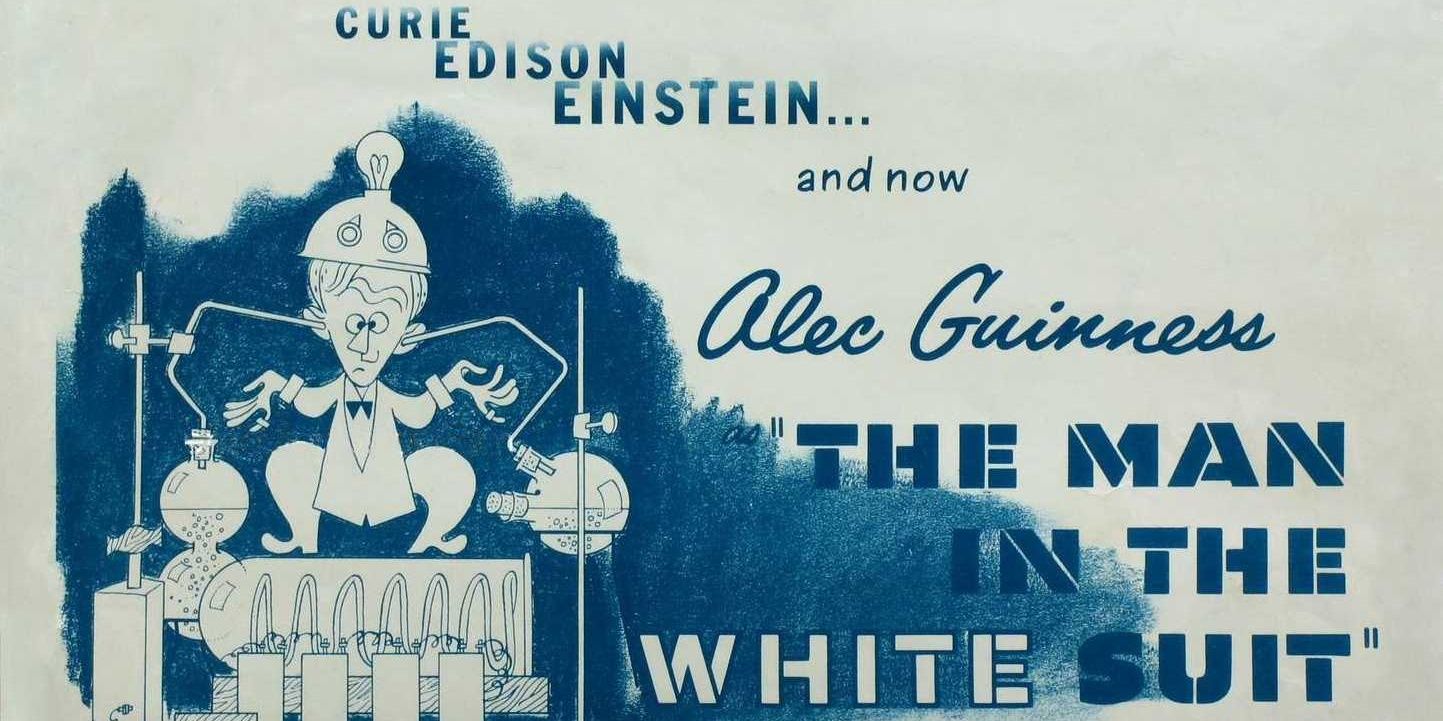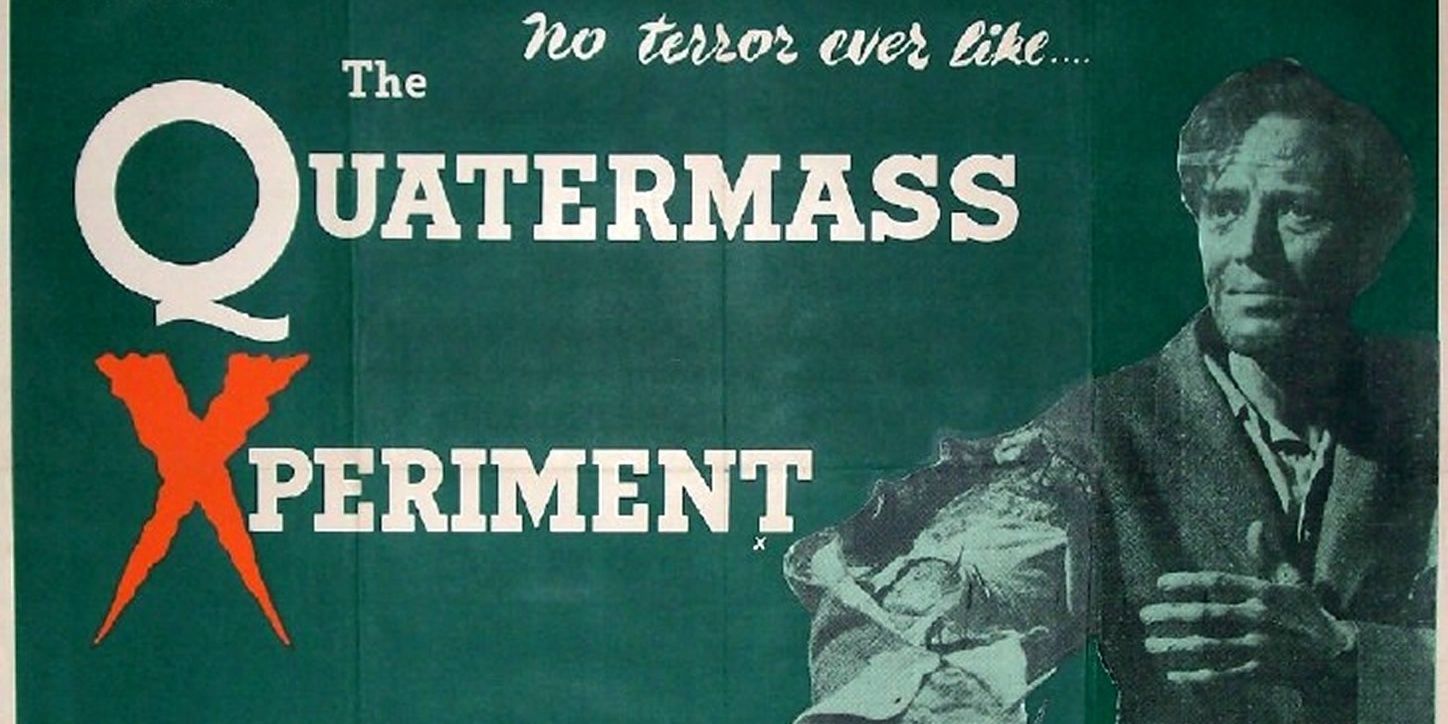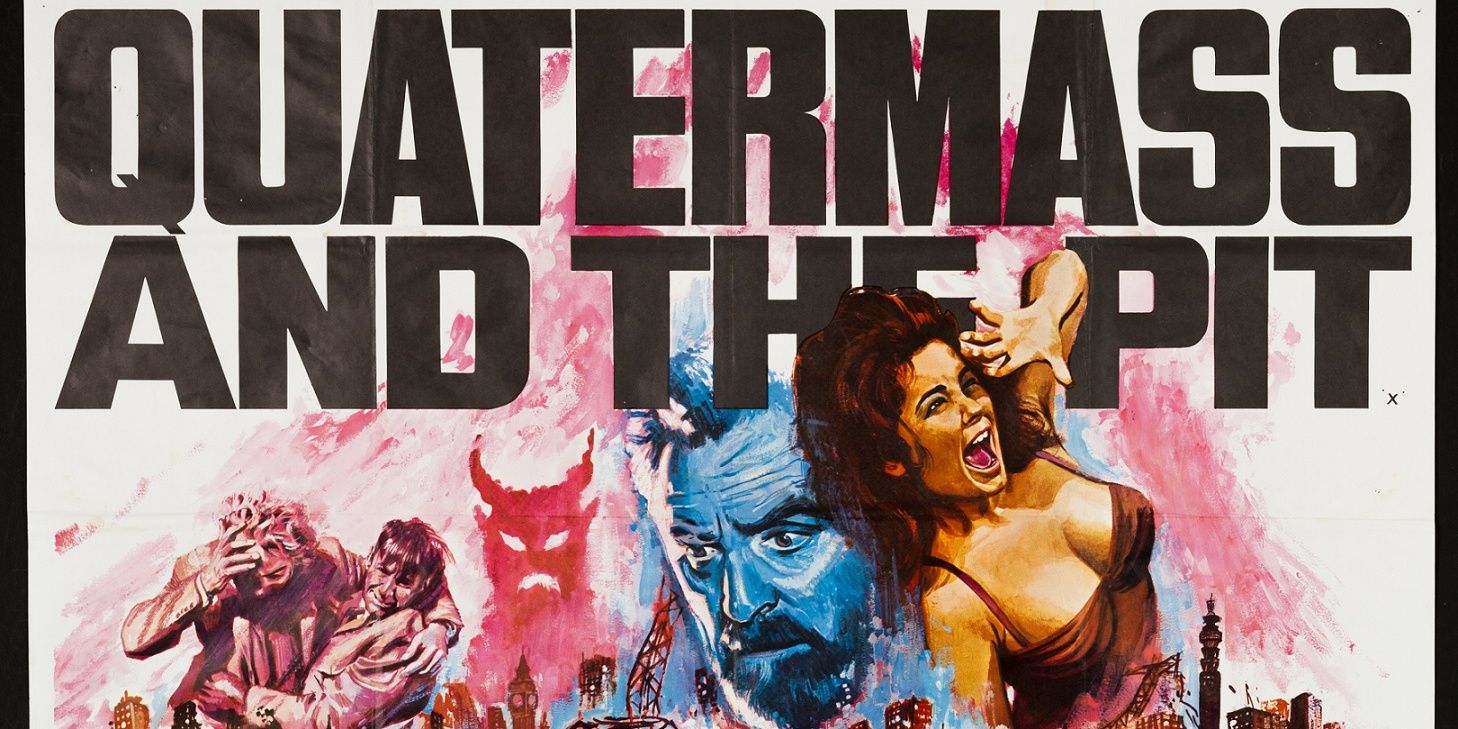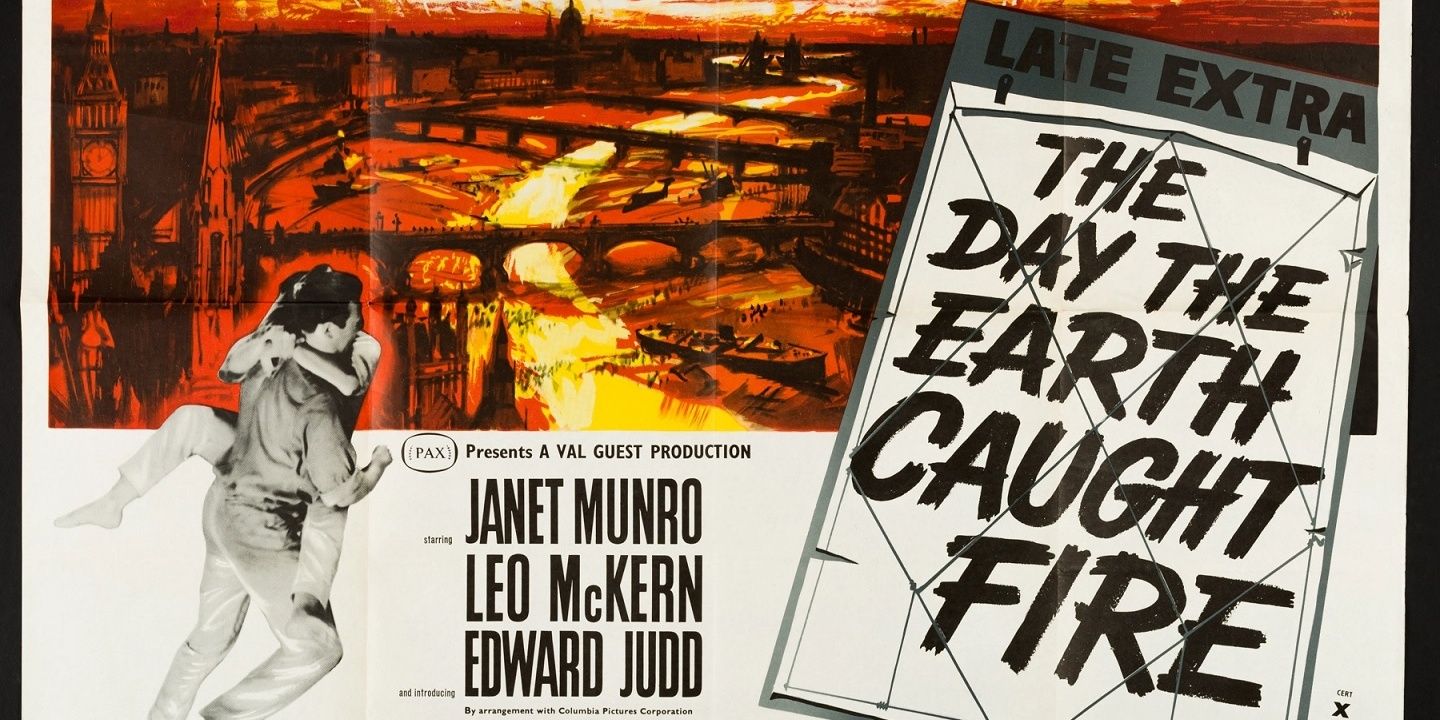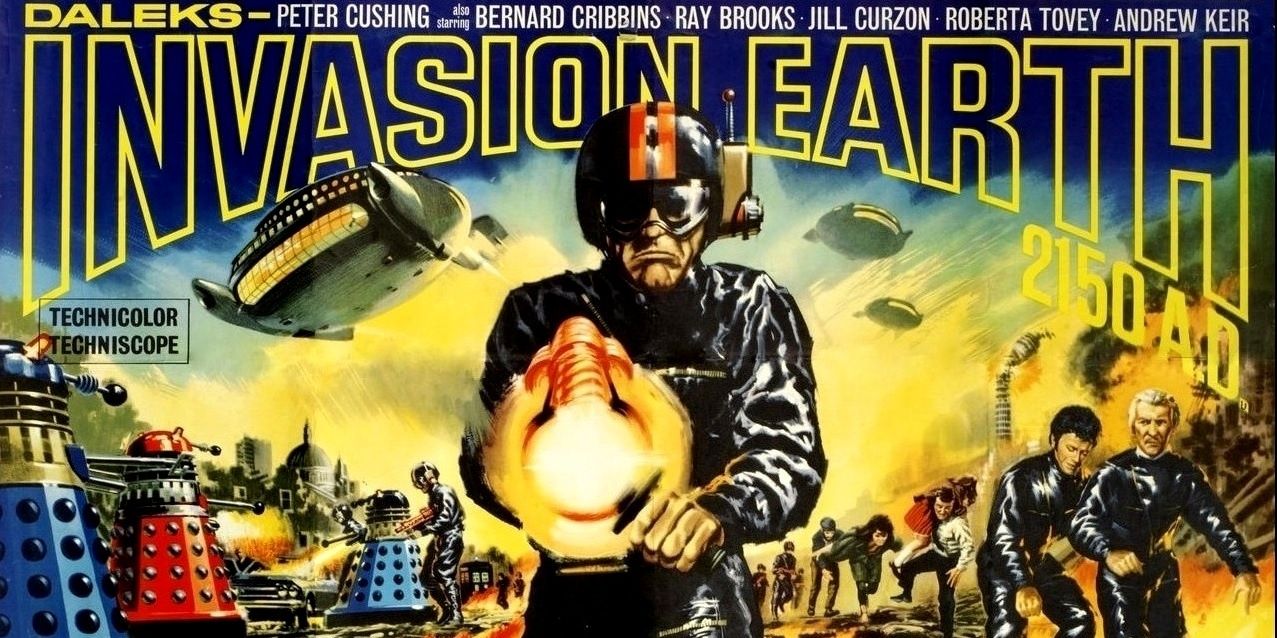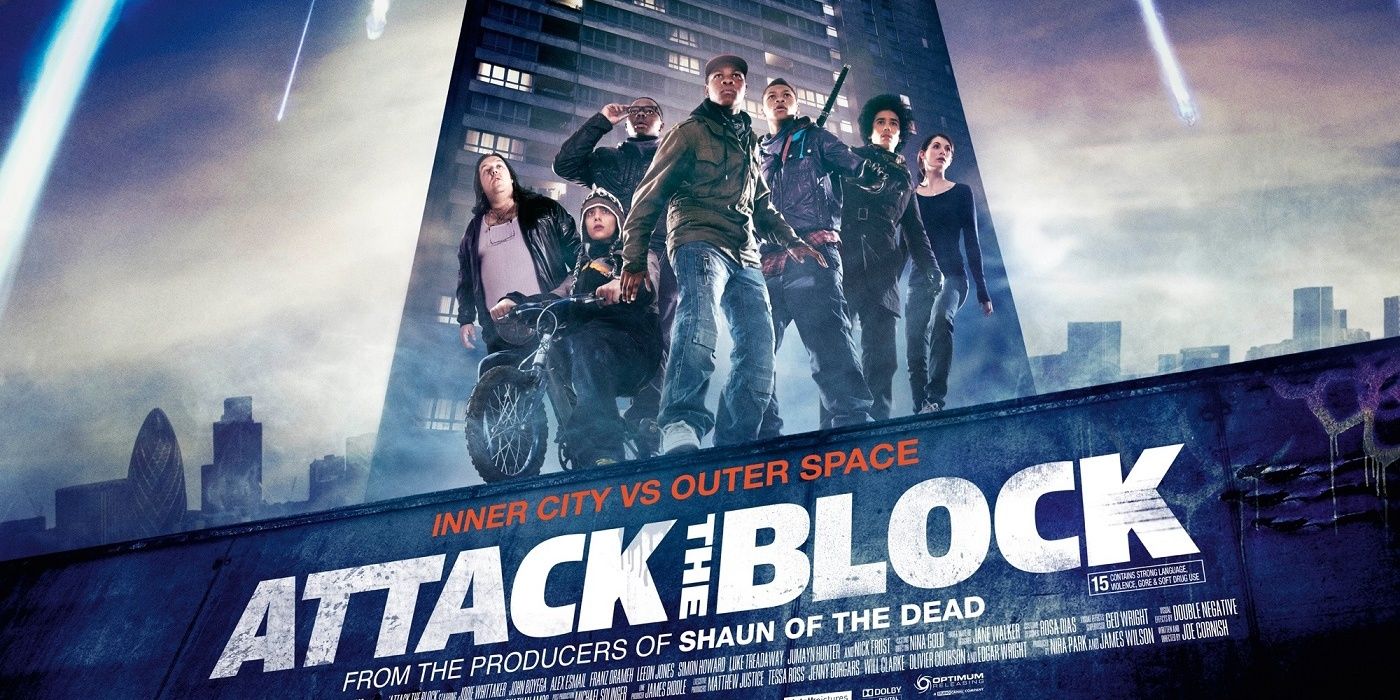Depending on who is asked, Britain either invented the sci-fi genre with authors like H.G Wells, came second to France’s Jules Verne, third to Edgar Allan Poe, or were first all along via Mary Shelley’s Frankenstein. Wherever it started, it’s perhaps a moot point as many countries worldwide have contributed significantly to the genre in one way or the other since its inception.
Still, the UK has produced some famous entries in the genre. War of the Worlds, 1984, The Sentinel (aka 2001: A Space Odyssey), and their respective film adaptations have inspired many across the world to do their own takes on sci-fi. However, there are some British sci-fi films whose influence didn’t really escape the country’s shores. It’s a shame, as these underrated gems are worth a watch.
7 The Man in the White Suit
Ealing Studios was famous in the 1940s and 1950s for its comedies, and 1951’s The Man in the White Suit is considered one of their hidden gems. In it, Sidney Stratton, played by Alec Guinness (yes, Obi-Wan himself), has created a new fabric that’s incredibly strong, never wears out, and repels dirt, stains, and dyes. Sidney turns it into a suit to model its potential, only to get torn between corrupt management who want to buy his product off of him, and trade unions who fear his fabric will destroy the textile industry.
Now he has to find a way to escape from both mobs, which is hard as his bright white suit glows in the dark. On the face of it, its sci-fi connections are mild, as it focuses more on how workers and their bosses react to innovations. However, that’s also part of its charm. Anyone burnt out on aliens, cyborgs, and spaceships will enjoy it being a more down-to-earth tale about an inventor caught between his bosses and his workmates. That’s not to mention that, even 70 years later, it's original in combining sci-fi with textiles of all things.
6 The Quatermass Xperiment
Starting off life on the radio as The Quatermass Experiment, writer Nigel Kneale’s curiously named professor lost the ‘E’ when it was adapted to the cinema in 1955 by Val Guest and Richard Landau. Quatermass is the head of an Anglo-American space mission to send three astronauts into space. However, things go wrong when he and his team lose contact with the rocket, and it crashes back on Earth. Only one of the astronauts, Victor Carroon, is found aboard.
As Quatermass’ team investigates what happened to his two shipmates, Carroon breaks free and goes on a rampage through the town. Quatermass discovers Carroon has been taken over by an alien organism that absorbs other life into it. It absorbed the other two astronauts and threatens to take over the rest of humanity if it can’t be stopped. In other words, it's a British precursor to body horror sci-fi films like 1982's The Thing (or a variant on its 1930s novel basis Who Goes There). The film also got referenced in Metal Gear Solid 3: Snake Eater, albeit misremembered as 'The Quartermass Experiment'. No wonder the US retitled it The Creeping Unknown.
5 Quatermass and the Pit
While the original Quatermass Experiment was famous, and its sequel Quatermass 2 was respectable, the most famous entry in the series was 1967’s Quatermass and the Pit. Written by original scribe Nigel Kneale, and directed by Roy Ward Baker, the Professor is part of an investigation into a mysterious object found in the London Underground. They find it among the remains of early humans dating back to 5 million years ago.
Quatermass deduces that the object is a ship from outer space, possibly of Martian origin, and it has influenced human development and evolution since its landing. Though met with skepticism, the object awakens and begins controlling the people around it, making them kill others and destroy the city to clear the way for the Martians’ influence. Part of the film’s plot inspired an episode of the 1990s X-Men cartoon, where the team finds a spacecraft and suggests it affected humanity too.
4 The Day the Earth Caught Fire
Directed by The Quatermass Xperiment's Val Guest, 1961’s The Day the Earth Caught Fire is part romance, as divorced journalist Peter Stenning connects with typist Jeanie and part apocalypse. The US and Soviet Union accidentally set off a series of nuclear tests at once, affecting the Earth’s angle as it orbits the sun. It causes the planet to move on a collision course towards the sun, increasing global temperatures to sweltering degrees.
Rivers dry up, lakes dwindle to nothing, water gets rationed, and cities get abandoned. Humanity’s only hope is to right its axis by detonating the same number of nuclear weapons in Western Siberia. While the science is definitely fiction, the film feels particularly relatable today. As global warming takes hold and puts the population under similar threats, its premise and ambiguous ending feel particularly prescient.
3 Daleks - Invasion Earth 2150 AD
Within the UK, the recently passed Bernard Cribbins was a national icon, inspiring generations with his roles in comedies, dramas, and even music. Internationally, he’s better known as Wilfred Mott, the grandfather of Donna Noble from the Dr. Who series. However, some might be surprised to learn that the TV show wasn’t his first time dealing with the titular Doctor and his foes.
In 1966’s Daleks- Invasion Earth 2150 AD, he played policeman Tom Campbell, who ended up in the TARDIS when trying to call in an attempted robbery. The Dr. Who films differ from the series, as the Doctor (played by Peter Cushing) is a human inventor instead of a Timelord. But Daleks are generally regarded as the best of the bunch, as Tom, the Doctor, and his niece and granddaughter travel to London in 2150 AD and help the human resistance fight back against the occupying Daleks.
2 Threads
In 1983, it was said that the American film The Day After convinced Ronald Reagan to change his mind on his nuclear weapons policy. If he saw 1984’s Threads, he might’ve changed it much more drastically. This BAFTA-winning drama covered a similar topic, as the US and Soviet Union begin using nuclear weapons against each other at targets worldwide. The UK gets caught in the crossfire, with the city of Sheffield getting obliterated by a direct hit.
The global detonations cause the sky to be blocked out by atmospheric smoke, causing a nuclear winter. Even when the sun breaks through, the damaged ozone layer lets in ultraviolet light that exposes the population to cataracts and cancer. The few survivors are left struggling to survive under martial law at best, and anarchy at worst. There’s no happy ending. Just atrocity after atrocity as humanity falls. It’s not a film for the faint-hearted.
1 Attack the Block
Finishing off the film on a high note, 2011’s sci-fi comedy Attack the Block by writer/director Joe Cornish is a much happier experience. It was overshadowed by the other Nick Frost alien film Paul. Though just over a decade later, Attack the Block is regarded as the better movie of the two. It might even be John Boyega's best sci-fi film thus far, beating out the Star Wars Sequel trilogy.
In the film, a meteorite lands on a car in a section of London. A gang of teens and a trainee nurse investigate it and discover it came with a particularly violent visitor. Then more meteorites land and bring more alien creatures with them. At first, the hoodlums were going to kill the creatures for fame and fortune. But now they want to protect their people and their block from these invaders and save the day. While it’s a little violent, it’s a fun film and more representative of inner-city London and the UK than any Richard Curtis romcom or period drama.





